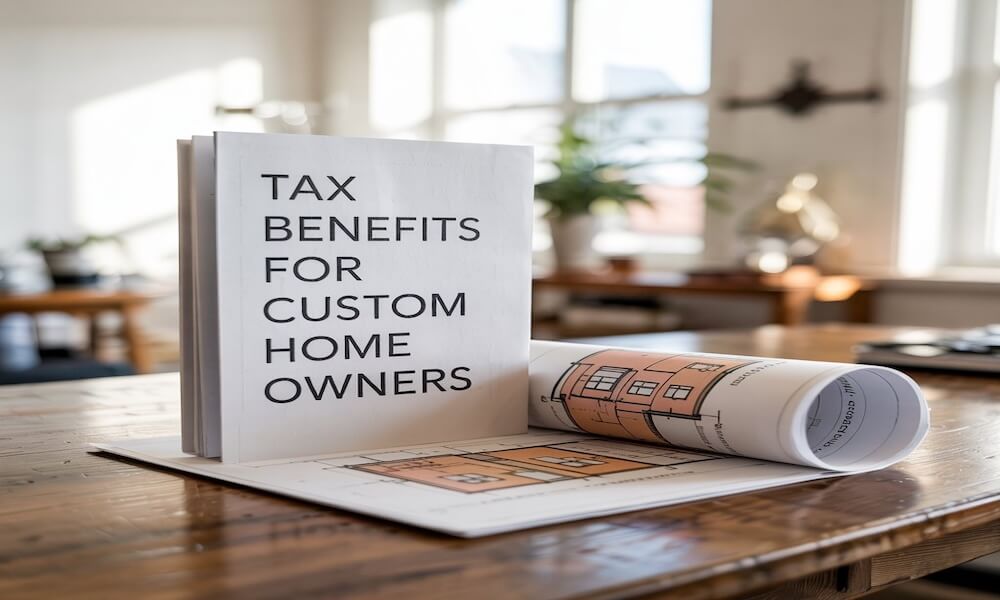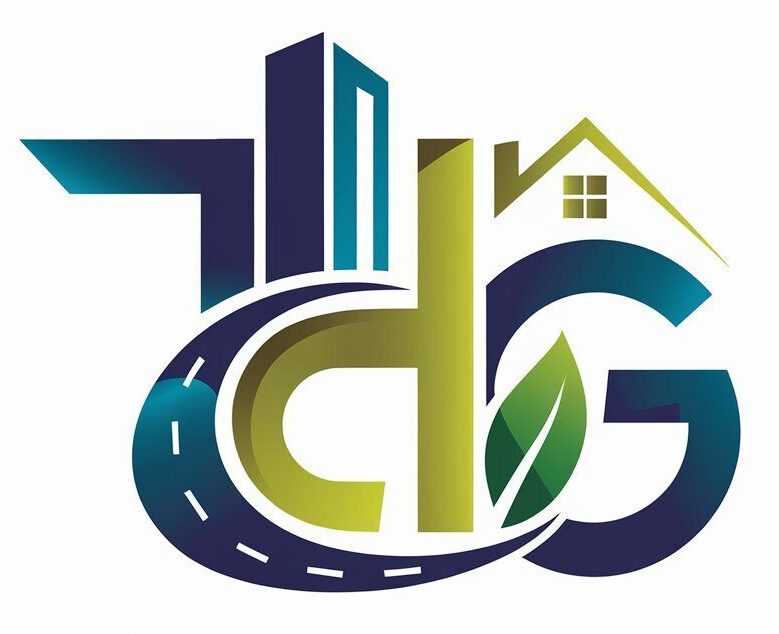Tax Benefits Of A Custom Home
Tax Benefits of Building a Custom Home: What You Need to Know
Building a custom home is a major investment—but it also comes with potential tax advantages that can make the process more affordable than many people realize. From mortgage interest deductions to energy efficiency incentives, a variety of tax benefits are available to help offset the costs of constructing your dream home.
Whether you’re still in the planning stages or already breaking ground, understanding these tax perks can help you make smart financial decisions and potentially save thousands over the life of your home.
In this article, we’ll break down the most common tax benefits associated with custom homes and how to take full advantage of them.

1. Mortgage Interest Deduction
One of the most well-known tax benefits for homeowners also applies to custom builds: the mortgage interest deduction. If you take out a mortgage to build your home, you may be able to deduct the interest you pay on that loan, just like with a traditional home purchase.
Key Points:
- You can deduct mortgage interest on up to $750,000 of qualified debt if married filing jointly (or $375,000 if single).
- The deduction applies during the construction period, as long as it doesn’t exceed 24 months and the home becomes your primary or secondary residence once completed.
- Construction loans that convert into a standard mortgage typically qualify for this deduction as well.
2. Property Tax Deduction
Homeowners can also deduct state and local property taxes on their federal income tax return, up to a combined $10,000 limit (or $5,000 for married individuals filing separately).
Why It Matters for Custom Homes:
- Even though property taxes are determined by the value of your home and land, the ability to deduct them reduces the overall cost of ownership.
- Be aware that this deduction is subject to limitations under the IRS’s SALT (State and Local Taxes) cap, so it benefits those in states with moderate to low property tax rates most.

3. Energy Efficiency Tax Credits
If you’re incorporating green or energy-efficient features into your custom home, you may qualify for federal tax credits under programs like the Energy Efficient Home Credit (45L) and the Residential Clean Energy Credit.
Examples of Eligible Upgrades:
- Solar panels: You can claim 30% of the cost of solar energy systems, including installation.
- Geothermal heat pumps, wind turbines, and fuel cells may also qualify.
- Energy-efficient windows, doors, insulation, roofing, and HVAC systems may earn you tax credits depending on current federal and state programs.
These incentives not only reduce your carbon footprint but can also provide thousands of dollars in savings.
4. Capital Gains Exclusion (Future Benefit)
Although not an immediate benefit during the building process, custom homeowners can take advantage of the capital gains exclusion when selling their property later.
How It Works:
- If you live in the home for at least 2 of the last 5 years before selling, you may exclude up to $250,000 in profit (or $500,000 for married couples) from capital gains taxes.
- This is especially beneficial if you build in an area where property values are rising or if you make improvements that boost your home’s resale value.
It’s a longer-term benefit, but a very powerful one for building equity and wealth.

5. Home Office Deduction
If you run a business or work from home, you may be eligible for the home office deduction. This is especially useful when building a custom home because you can intentionally design a space that meets the IRS’s eligibility requirements.
Requirements:
- The home office must be used exclusively and regularly for business.
- It must be your principal place of business, or a location where you regularly meet clients or conduct administrative tasks.
You can deduct a portion of home-related expenses (utilities, insurance, repairs, and depreciation) based on the square footage of your office space.
Pro tip: Designating this space during the custom build makes it easier to document and qualify for deductions.
6. Construction Loan Interest Deduction
While your home is under construction, you may be able to deduct interest paid on your construction loan (separate from a mortgage) for up to 24 months if the home will be your primary or secondary residence.
Things to Keep in Mind:
- The loan must be secured by the property.
- You must move in once the construction is complete.
- Track all interest paid and ensure your lender provides detailed statements.

7. Depreciation (For Rental or Dual-Use Properties)
If part of your custom home will be rented out—such as a mother-in-law suite, a basement apartment, or a detached ADU (accessory dwelling unit)—you may be able to claim depreciation deductions on that portion of the home.
How It Works:
- The IRS allows property owners to depreciate residential rental property over 27.5 years.
- You can also deduct associated expenses such as repairs, insurance, and utilities related to the rental space.
This makes mixed-use custom homes an attractive option for those looking to generate passive income while reducing their tax burden.
8. Local and State Incentives
In addition to federal benefits, many states, counties, and cities offer tax incentives for new construction, particularly for:
- Energy-efficient homes
- LEED-certified homes
- Historic home restoration
- Affordable housing development
Some states even offer property tax abatements for a set number of years after construction, significantly reducing your costs in the early years of ownership.
Summary of Key Tax Benefits
| Tax Benefit | When It Applies |
| Mortgage Interest Deduction | During and after construction |
| Property Tax Deduction | Annually after moving in |
| Energy Efficiency Tax Credits | Upon installing qualifying systems |
| Home Office Deduction | Ongoing if self-employed or WFH |
| Capital Gains Exclusion | Upon selling after 2+ years of residence |
| Construction Loan Interest | During 24-month build period |
| Rental Space Depreciation | Ongoing if part of home is rented |
| Local Incentives | Varies by state or municipality |
